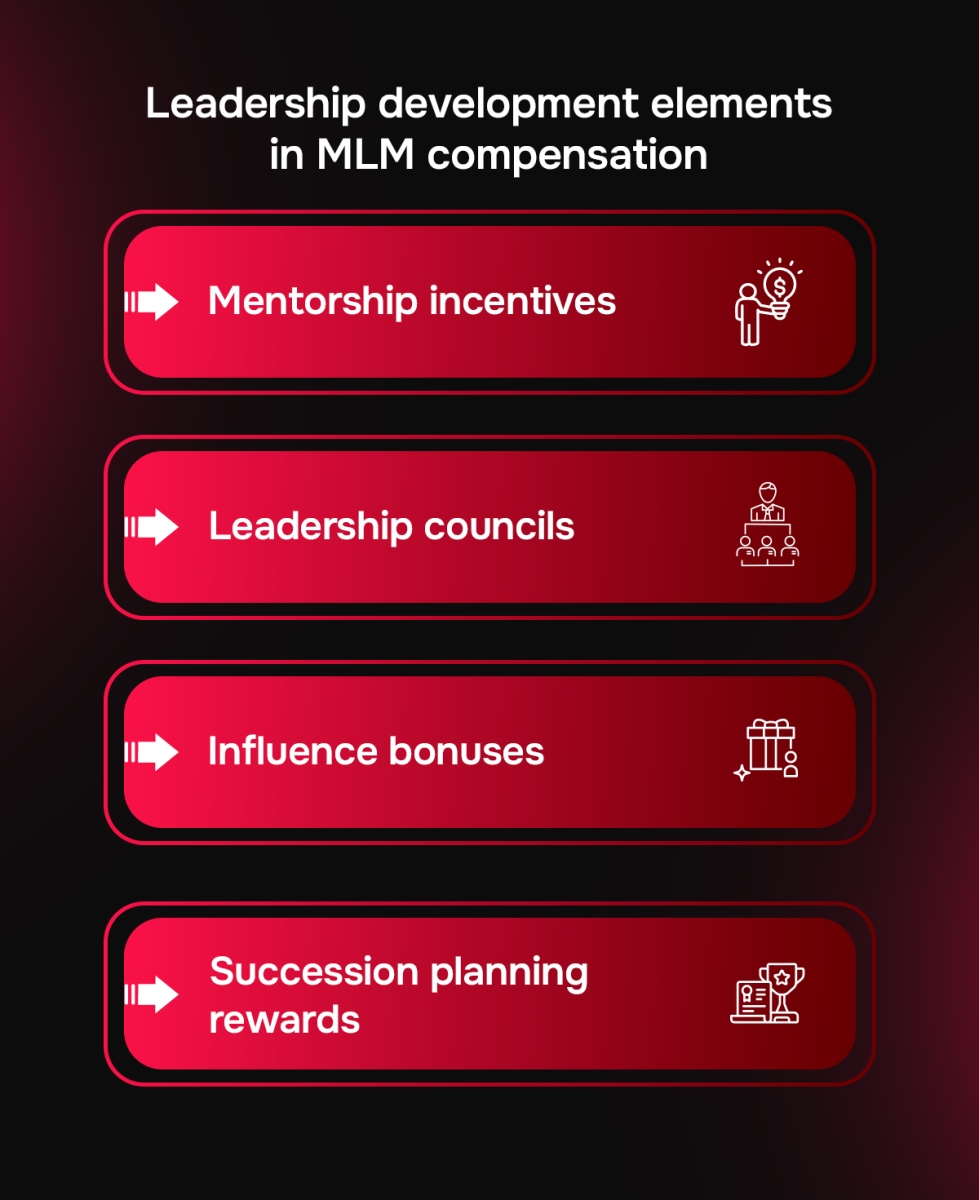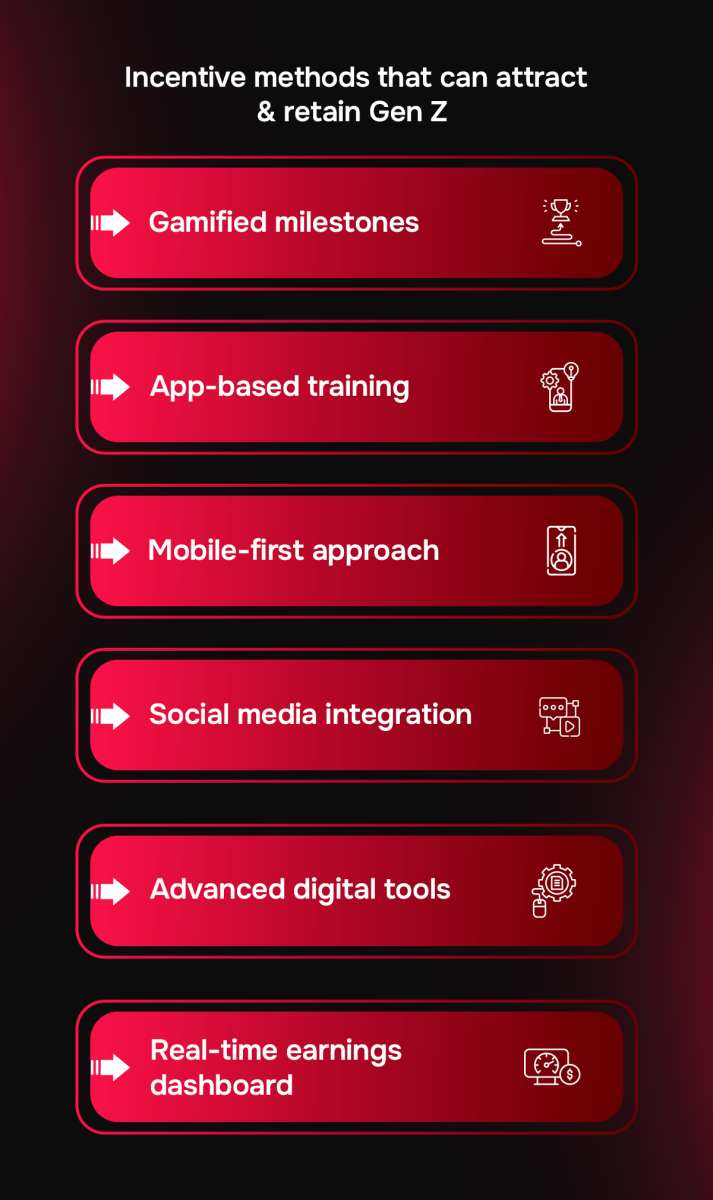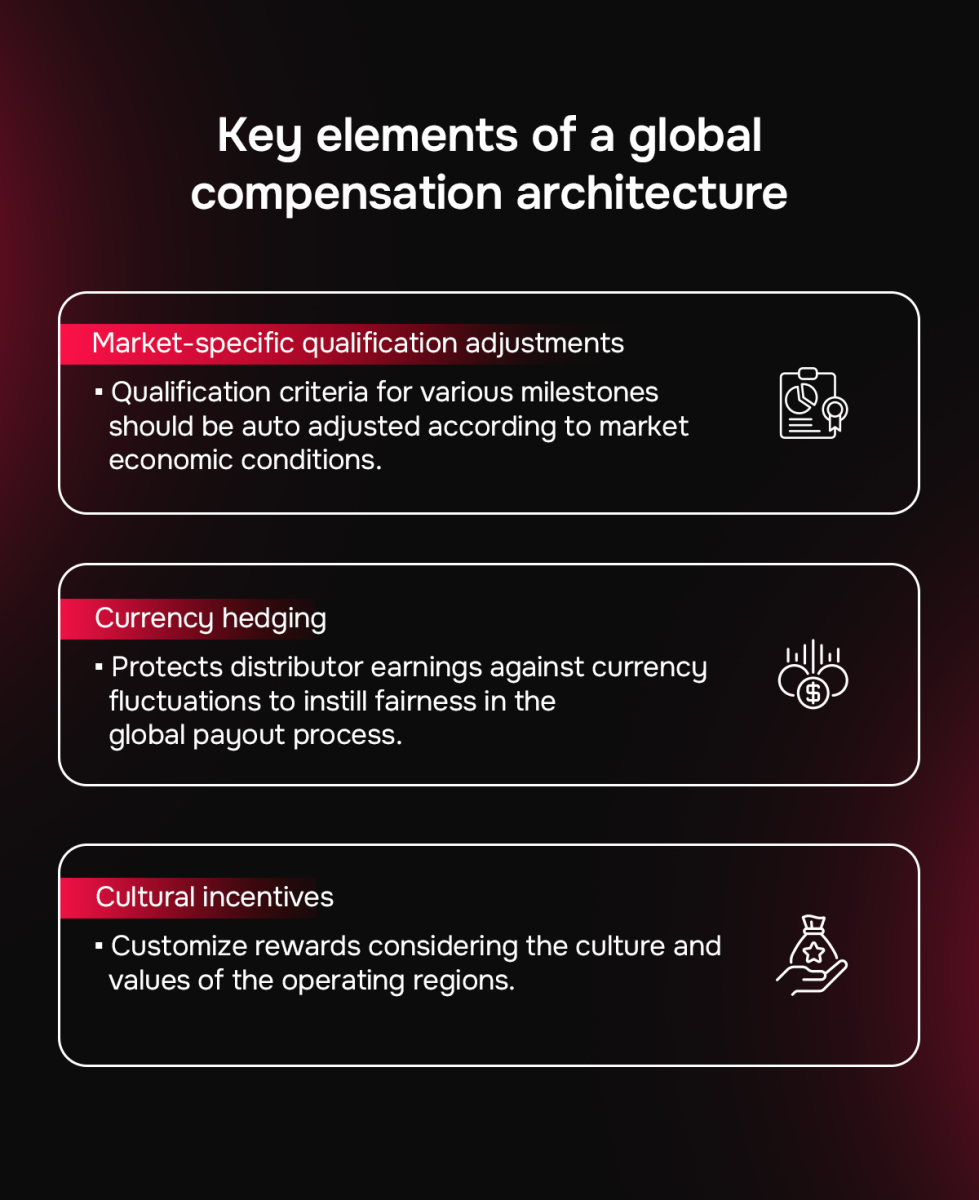Compensation plans in network marketing once used to be for the sole purpose of rewarding distributors for their product sales. The same holds true even today, but the approach to developing and managing compensation plans has changed interestingly. MLM companies consider compensation structure to something beyond payouts and profits.
Present day compensation structures reflect a company’s vision and market-distributor behavior. The formula for the most profitable compensation plan is thus derived from combining the right technology with behavioral data.
A network marketing compensation thus built creates a strong foundation upon which performance and growth of the organization and its team take shape.
Strengths of the traditional MLM compensation plans
Binary, unilevel, matrix, breakaway, generation, and hybrid plan once laid out the blueprint for the success of MLM businesses worldwide. Each plan with its benefits and structure helped MLM organizations and their salesforce achieve their goals.
- Binary plan concentrated on teamwork and expansion with each member responsible for supporting the success of their downline teams.
- Unilevel, the simplest of all MLM plans, offers infinite earning opportunities for the members of its network.
- Matrix plans are preferred mostly by organizations who are pertinent on structured growth. The members in a matrix MLM network can predict their earnings and enjoy time-oriented rewards.
- Breakaway plans are well known among distributors for its personal and leadership development opportunities.
- And with hybrid plans, the benefits of the individual plans are combined to create a single plan that is beneficial to the organization and their salesforce.
The plans are not differentiated for their structure alone, they stand out for the value they offer in terms of growth opportunities and personal development. These traditional MLM plans have now turned out to be the foundation on which modern compensation structures are built.
Creating a new tradition through technology and innovation
The traditional plans do not have the ability to uphold what businesses strive for: Distributor motivation and consistent performance across the network. A few structural changes to the existing MLM plans can create innumerable benefits for the organization and the distributors involved.
Dynamic compression
Static compression skips inactive distributors to reward the active ones at the end of each payout cycle. Dynamic compression, on the other hand, rewards active distributors in real-time skipping the inactive ones without waiting for the payout cycle.
Dynamic compression algorithms auto adjust the system to knock off low performers and inactive distributors to reward the performing ones fairly. These real-time adjustments make network expansion smoother and distributor motivation easier.
Micro-achievement recognition
Celebrating small real-time rewards often counts more toward motivating distributors than big, delayed rewards. Distributors who are rewarded often perform better and stay loyal to the brand.
Organizations can introduce seasonal incentives or special bonuses within their existing compensation structure to reward distributors who achieve special milestones.
Bring in transparency and security in your compensation process with Blockchain
Implementation of an advanced technology like Blockchain can ward off the unnecessary friction and disputes caused in the direct selling compensation process. Blockchain establishes distributor trust with transparent records of all compensation-related transactions.
Automated smart contracts built on Blockchain can add accuracy and efficiency to your payout process. The system auto processes the payouts on time when given conditions are met. This brings security and transparency to transactions and trust to the organization.
In a Blockchain-powered compensation system, distributors can analyze their commissions in real-time and understand how commissions and ranks are calculated. Such a fair process that upholds distributor satisfaction earns commitment and long-term loyalty with which distributor retention and recruitment rates soar high.
Forecast growth better with AI and predictive commission models
No plan is ever a success without the right foresight. Knowing what course the plan takes before it actually settles in, gives you the time and space to devise a fallback plan that absorbs risks when the unexpected happens.
Integrating artificial intelligence into compensation development helps you rule out assumptions by grounding your decisions in data-driven evidence. Every insight thus derived can be put to build future-proof compensation structures with predictive commission models.
Predictive commission models can help
- Identify low performers who are on the verge of churn.
- Customize rewards based on distributor behaviors and factors that motivate them.
- Auto adjust compensation structure to balance organizational performance.
- Guide distributors with personalized earnings forecasts based on their current performance.
AI-driven compensation management systems have proven to help companies improve distributor performance through adaptive compensation structuring.
Enhance engagement with gamification
Gamification has long found its path to MLM compensation process and has been a sole contributor of engagement and performance. But as we stand today, mere badges and honors seem to have lost their vigor. The present day MLM compensation process needs something more appealing.
Moving distributors from mere ranks to value-driven roles
This is a sheer reflection on the capacity of technology to bring value to the performance-and-progress part of your compensation process. Instead of promoting distributors from a “Gold” to “Silver” to a “Diamond”, you take them through a value-based narrative which gives their journey a meaning and identity.
The emotional engagement factor makes rewards feel like a part of a meaningful journey not merely a compensation process.
Reward group efforts
Building team goals into your compensation establishes stronger bonds between your network members than individual goals. A common goal creates a strong bond which in turn improves performance.
Powerful compensation strategies with data analytics
Data analytics applied to compensation plan scans different metrics related to its performance and profitability. Data analytics systems analyze the time taken to complete commission and rank advancement milestones, distributor engagement rates, and fairness in compensation distribution.
Analyzing these metrics continuously lets organizations optimize their compensation plan immediately without having to wait for a periodic review cycle.
Step into the future with hybrid compensation plans
Companies struggled between choosing a single MLM compensation plan for their business when the intended benefits lie scattered in multiple plans. Hybrid MLM plans removed this complexity by letting companies create a solid compensation plan that combines the benefits of two traditional MLM plans.
Consider the case of combining binary and unilevel. The latter can be implemented for rewarding distributors for customer acquisition and the former for rewarding team efforts.
Now is a time when the mindset of businesses is shifting from generating profits to delivering value. Hybrid MLM plans stand as a value-driving asset that brings in distributor satisfaction with organizational growth.
Discover how we build resilient businesses with advanced MLM functionalities
Mobile access to compensation data
The need for complete visibility on earnings and compensation process is turning out to be a competitive advantage more than an operational necessity. Distributors are used to transparency and accessibility in every walk of their lives and they expect MLM companies to uphold the same in their direct selling career too.
Mobile-friendly compensation features give a complete view of the compensation process for organizations with payout and distributor performance data. And for distributors, mobile compensation platforms with earnings dashboards help track their earnings, goals, and team performance.
Mobile platforms offer:
- Real-time commission tracking with details of payouts and withdrawals.
- Goal tracking feature to view their progress to the next rank or level.
- Compensation calculators with predictive analytics that forecast the impact of current compensation structure.
- Automated compensation adjustments based on current plan performance.
A compensation structure for leadership development

The compensation structure of a company must focus on offering a growth system that is sustainable for the company and its workforce. But when we go beyond these surface elements, we see a dire need for the development of true leaders within the network. The compensation architecture can be molded in a way that inspires leadership qualities among distributor network.
Mentorship incentives
Mentors guide their downlines through lead generation to successful conversion. Rewards for mentees who create new leaders through their mentorship activities and support encourage future teams to follow the path. Mentorship incentives system tracks various mentorship metrics such as number of mentorship programs conducted, their success rate, participation rate, etc.
Leadership councils and influence bonuses
Top performing distributors need more than just rank advancements and commissions. Leadership councils are special groups of top performers or leaders who are given a voice in the company’s decisions and strategies. The advisory role motivates them to contribute to the greater development of the company apart from sales and recruitment.
Influence bonuses reward these top performers for their contributions to the growth of the company through their experience and ability to guide others.
Succession planning rewards
When top leaders leave a multi-level marketing company, the company suffers immensely leading to a sudden collapse. Incentives like succession planning rewards can be an option to prevent this where top leaders who develop successful transition plans are rewarded and respected for their commitment.
A compensation structure for all generations
Multi-level marketing networks have distributors from various demographics. Hence it also becomes necessary that the incentive system includes factors that motivate each of these groups distinctly.
Compensation structure for Gen Z engagement
Highly tech-savvy distributor groups expect companies to offer exceptional digital experiences like real-time and transparent payouts. They appreciate rewards tied to purpose and value.

Rewards that define millennial experiences
Millennials value work-life balance and social recognition. Incentive structures that appreciate team efforts and lifestyle goals rank high among millennials’ compensation preferences. Hence lifestyle bonuses and team achievement rewards are the best fit for the generation.
The interest factors for Gen X and Boomers
Predictable income and financial security are the most considered factors when it comes to Gen X and Boomers in network marketing. Short-term incentives are less valued and they prefer long-term earnings like retirement matching programs and equity-like rewards.
Getting ready for global growth with flexible compensation structures
Compensation structures must be flexible enough to accommodate the growth and changes that businesses take in their course. International expansion is one such necessity and at the same time a challenge.
Setting up a single compensation structure upright and expecting it to work perfectly well through all conditions is unrealistic. Compensation plans have to be flexible and adaptable to the regional requirements of the organization.

Customer-centric compensation for sustainable growth
Compliance regulations often shroud the growth of the business if not approached carefully. A compensation structure that is compliant with all industry and legal regulations is not enough though. It has to uphold the best interests of customers as well.
Such a compensation structure will prioritize customer retention and acquisition to back-to-back recruitment. Companies include customer-centric elements in their compensation plan through customer acquisition bonuses, customer retention rewards, and preferred customer programs. Tiered customer bonuses calculated on customer lifetime value (CLTV) and spending patterns also bring customer focus into the compensation plan.
Direct selling industry and related organizations have been recognizing companies for their customer-centricity by considering factors like distributor-to-customer ratios. It thereby becomes a mandatory factor in developing compensation plans.
A successful MLM compensation plan becomes a reality when the right values, strategies, and technology are blended in the right proportion. The traditional compensation plans contained just numbers and percentages, they did bring success but this is not sufficient. Today, changing generations and socio-economic conditions have a larger effect on how companies approach the market and its customers. Compensation plan is the right token to set that right for the organization, its salesforce and customers.
- Strengths of traditional MLM plans
- New tradition with technology
- Transparency with Blockchain
- AI and predictive commission models
- Engagement with gamification
- Compensation strategies with data analytics
- Hybrid compensation plans
- Mobile access to compensation data
- Leadership development
- Multi-generational compensation structure
- Global expansion with flexible compensation plans
- Customer-centric compensation plan









Leave your comment
Fill up and remark your valuable comment.